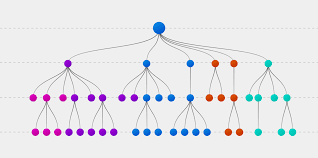Because regulations can be lifted at the stroke of a pen and psychological comfort levels adapt to new circumstances (like widespread vaccination) swiftly. Who is not desperately looking forward to an unencumbered, worry-free, convivial meal at a busy restaurant ASAP? Or even, if you’re in the same improbable minority as I am, getting back on airplane to go visit clients and Law Land friends? (The technical term for this is “pent-up demand.”) And this matters economically because once the largely voluntarily applied brakes are lifted, the car is fundamentally sound.
Of course, pressing the analogy too far gets you in trouble, as almost invariably happens with analogies. After all, national and global economies are not “like” cars in any recognizable sense other than our own metaphorical coinage. So we won’t push our luck.
Saying large sectors of the economy are as sound as ever, while severe damage of unknowable duration has been inflicted on other sectors, is far more accurate. Those on the end of this dichotomy that have taken it on the chin include, as we all could recite in our sleep, hospitality/travel/commercial real estate, and—sadly, tragically, sometimes crushingly—small local retail businesses, while those apparently getting off scot-free or even leaping ahead include tech almost across the board, the online multiverse almost across the board, logistics, home improvement, fitness/entertainment-at-home, and…Law Land.
A final observation about the economic consequences of our hellacious global Covid-19 interregnum: The ubiquitous, but nonetheless accurate, assessment that it has accelerated a variety of trends already in place.
Stage thus set, what might we take from the aftermath of the 2008 GFC to inform our planning for the post-Covid-19 world?
- Before the GFC, one trend that was not apparent to most observers—it was “weakly signaled”—was clients becoming more purposeful about segmenting their legal work into one set of matters that demanded the highest quality and another set, the great majority of matters, where economy was the key criterion.
- This “flight to quality” vs. “flight to economy” came at the expense of what I later labelled in a different context the “Hollow Middle.”
- We felt that calculation was always present, but the market, at least the law firm side of the market, seemed unaware or dismissive of it before the GFC. Afterwards, everyone who thought much about it had to acknowledge this new reality.
- (BTW, on a semantic note, we do note use the conventional phrasing of flight to quality vs. flight to value because we firmly believe “value” can be found at all price points, as can, sadly, its opposite.)
- The second major development in Law Land that rose to the surface in the wake of the GFC was putting ALSP’s (“NewLaw” is our preferred coinage) on the map. From having a market presence that was not measurable beforehand, NewLaw had begun its entrance onto the stage, in the form of (a) revenue growth; (b) credibility, and (c) mind share.
What might these two developments foretell for our post-Covid world?
Our money is on the “Covid slingshot” effect redoubling their importance, with both trends accelerating well into the future.
Why?
Because both provide benefits to clients that are conspicuously self-evident, and because neither trend has exhausted itself:
- Matching outside legal services providers (primarily drawn from the ranks of BigLaw) more closely to the gravity and potential consequences of the matter in the client’s eyes (Trend #1); and
- Increasing the value received per dollar spent when it comes to preferring NewLaw over Big (a/k/a Traditional) Law—receiving higher quality and/or faster turnaround and/or a lower cost. And the tiresome “pick two” joke doesn’t apply here; this is a case where you can actually have all three if you pick your NewLaw firm right. (Trend #2)
Now imagine you’re some combination of a law firm’s Managing Partner, Executive Committee, Director of Strategy, or Practice Group Leadership—and we know that many of you reading this are just that.
What are you to do?
Your homework assignment is to ponder that while we put the finishing touches on the second column we’ll be publishing on this minor issue.
But in the meantime, we think torturing our best readers is highly inadvisable both as a matter of editorial discretion and business strategy, so we’ll give you two hints:
- Is your firm a Maroon or a Gray?
- And to the Grays in the crowd: Do you think all Grays are the same?

Courtesy Explorium


